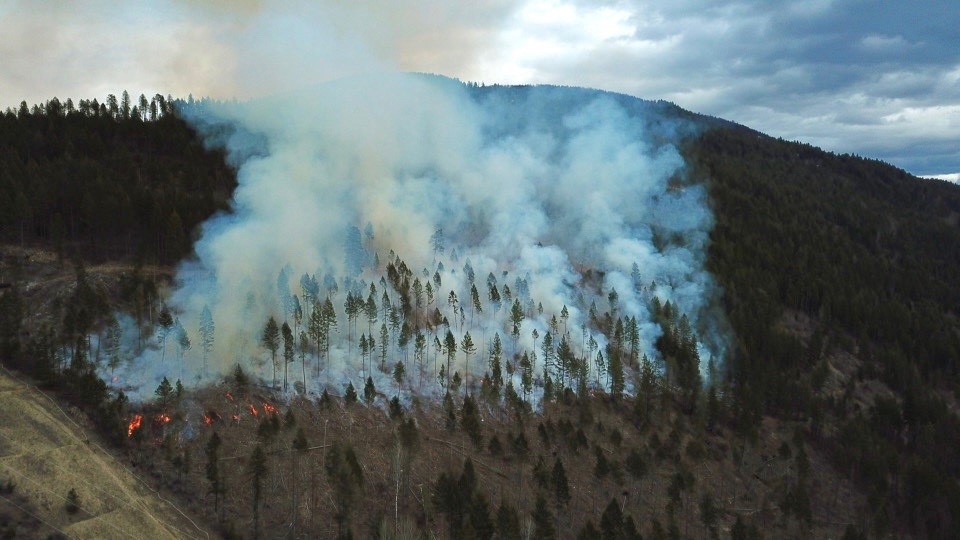
The BC Community Forest Association (BCCFA) recently released a report on wildfire risk reduction projects completed with a $5 million investment from the Province’s Economic Recovery Initiative.
Read the report here: Enhancing Wildfire Resilience: Summary Report of the BCCFA’s Wildfire Risk Reduction Economic Recovery Initiative
Launched in 2021, the Economic Recovery Initiative supported 45 wildfire risk reduction projects in 15 community forest tenures throughout the province. Under the initiative, approximately $5 million was allocated to the BCCFA to fund community forest projects to build wildfire resiliency and help offset the economic impacts of the COVID-19 pandemic.
The BCCFA worked closely with the BC Wildfire Service Crown Land Wildfire Risk Reduction Program (CLWRR) to build and implement the initiative between 2021 and 2023. Through this partnership, the BC Wildfire Service and BCCFA have built a collaborative relationship to support shared values and strategies of wildfire resiliency and are working to continue this in the future. BCCFA is a member-based, grassroots organization that works with the government to support community forest initiatives throughout the province.
Community forests are managed locally by municipal governments, First Nations, or community-held organizations to steward the valuable local forest resource to generate economic, social, cultural, and environmental benefits for their citizens. There are currently 61 community forest organizations operating across B.C.
Community forest agreement holders manage local forests for a range of objectives, including wildfire mitigation and community protection. Other objectives are:
- Creation of local forest sector jobs and providing log supply to mills
- Conservation of ecologically and culturally significant areas, including old-growth forests
- Enhancement of local recreation and forest education
- Implementation of sustainable forest stewardship, silviculture, and strategies for climate change mitigation and adaptation
Fuel management activities are a priority for many community forests, which are working to protect communities and reduce the risk of wildfire in the Wildland Urban Interface and the broader forest land base surrounding rural communities. As of January 2024, the program supported:
- 1,362 hectares of land treatments near 15 rural B.C. communities. Treatments included creating and maintaining fuel breaks, treating surface fuels, stand thinning and removing dead overstory
- 123-hectare prescribed burn conducted by the Burns Lake Community Forest with support from BC Wildfire Service and several partners engaged in Indigenous cultural uses of fire
- 21.2-hectare prescribed burn conducted by the Creston Community Forest in collaboration with the BC Wildfire Service
- Prescriptions for 1,272 hectares of future treatment
- 1,890 hectares surveyed for inventory and analysis
Through this work, local contractors have carried out fuel treatments and built capacity and knowledge for future wildfire risk reduction treatments. These projects generated a total of 9,895 person-days of employment, with 55 percent of this carried out by First Nations community members.
In addition to operations completed under the Economic Recovery Initiative, it is estimated that community forests have collectively treated over 8,100 hectares prior to 2023 and have invested over $8 million of their own dollars, while managing over $17 million in grants and funding from outside sources, such as the Forest Enhancement Society of BC (FESBC)
Read Enhancing Wildfire Resilience to learn more about specific wildfire risk reduction projects, lessons learned, and unique ways community forests reduce wildfire risk on the land and contribute to resiliency of rural communities.
Learn More:
Learn more about Cultural and Prescribed Fire
https://prescribedfire.ca/
Find out how you can reduce the risk of wildfire to your home at FireSmartBC
https://firesmartbc.ca/
